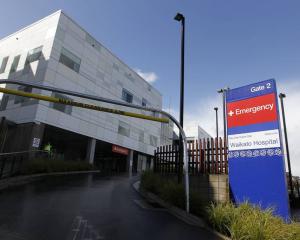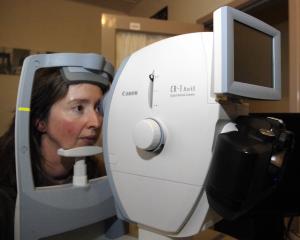
As feedback goes, it was fairly blunt.
"Patients didn’t really understand what was going on, and I don’t think most of them even realise now what a Health Care Home really is," a practice nurse told researchers working on an article recently published in the Journal of Primary Health Care.
Given that Health Care Homes (HCH) were the centrepiece of a primary health and community care strategy drafted by the former Southern District Health Board and WellSouth Primary Health Organisation, you might think that reaction would be a concern.
However, Stuart Barson, the HCH programme lead for WellSouth and one of the co-authors of the article in question, has reconciled himself to people still being confused as to what an HCH actually is.
"The best way to think about it is that you don’t need to know what an HCH is, so long as you experience the difference that an HCH practice can make," he said.
"If you look at it from that collective level, the HCH practices are much more likely to have patient portals and to have all all the functions of the patient portal turned on, and they are much more likely to ask a patient what is important to them in their care and write that down in the plan."
HCH is an integrated, team and patient-focused approach to primary care, which was developed in the United States, exported successfully to Australia, and then adopted by several New Zealand health districts and, more recently, by the new Te Whatu Ora Health New Zealand.
In Otago and Southland, of the 81 practices which are members of WellSouth, 32 have done or are in the HCH programme.
That sounds low, but those practices cover 204,591 patients — 63.8% of the total enrolled patients in the region — and include 63.8% of the southern Maori enrolled population and 73.6% of the enrolled Pasifika population.
That level of coverage meant that HCH was a success and that WellSouth had got "good bang for its buck", Mr Barson said.
"Like in all change management, it starts with leadership and people’s beliefs and values, and those things take a long time to develop and they can take a long time to shift.
"Some of the things in HCH are novel ideas, and if people aren’t aware of them or particularly comfortable with them, then it takes a long time to move: some places do move and some places don’t.
"As we have moved along in HCH, we have moved away from ‘are you complying with the model?’ and more towards ‘do you feel like you are improving things for your staff and patients?’, and if the practice was feeling like it was doing that, then that felt like a good measure of success."
Amity Health Centre in Dunedin was one of the first practices to become an HCH, in 2018.
Practice manager Catherine Daly-Reeve said she regarded the change as beneficial and that several aspects of it, such as GP’s triaging patients before they came to visit the surgery and increased use of telemedicine, had stood her team in good stead when the Covid-19 pandemic arrived.
"We have had a very positive experience of HCH, it has been good for us," she said.
"We already had all the necessary processes in place when Covid came along, all the IT side of things and the processes and payments were already set up and our patients knew the process.
"Other practices were scrambling but HCH had us really well set up, we felt really lucky," she said.
Same day GP triage had allowed appointments which did not need a personal visit, such as prescription repeats, to be weeded out of the daily schedule and replaced by someone who needed to be seen.
"We are now managing our appointments pro-actively rather than reactively, and can keep appointments set aside each day for those patients who desperately need to be seen; before we had to try and squeeze them in and that would have all sorts of knock-on effects for the doctors."
One unexpected but welcome development from HCH was greater collaboration between practices — she and other managers now regularly Zoomed and shared experiences and ideas, Ms Daly-Reeve said.
"In the past, practices worked in silos but now, particularly for practice managers, we have developed some really good networks and share information."
That would be music to Mr Barson’s ears, who said that team building, both within and without a practice, was a key to HCH succeeding.
"One of the things that has come through clearly in what we have heard from practices is that there has been a much greater sense of working together as a team.
"The morning huddle, the five-minute meeting where everyone finds out what is going on that day — a lot of practices were initially sceptical about that and wondered why should we do that, but generally they have found it to be useful and that is because it tends to be the only time of the day when they come together as a team.
"Generally, everyone is fair running from the moment they enter to the moment when they leave, so having that time to come together and talk about what is important, whose birthday it is, or which patient is coming in who needs something special, that is really helping to build up a team," he said.
The Journal of Primary Health Care article was the first examination of HCH implementation in New Zealand.
Although necessarily limited by only a small number of practices to assess, researchers identified several positives, and a few areas of concern.
While the evaluation found a general acceptance of the need for change, there was some concern that HCH had required too much too soon, and had sometimes placed excessive demands on the managers obliged to implement it.
Larger, well-resourced practices were better placed to make the switch, but small and/or rural practices could find it overwhelming.
"It is imperative to tailor the HCH model to local needs and individual general practices for successful implementation," it said.
Mr Barson said WellSouth now varied its support to aspirant HCHs depending on their needs: for example, an urban practice would likely need more help to manage demand for same-day appointments, while a rural practice might have other concerns, such as how to improve telehealth services.
"I think that you are seeing, not just in HCH but in general practice across the board, an increasing professionalisation of practice management," he said.
"Practices are now often recruiting what they call a general manager and that is someone who runs the business and does the HR, etc, etc, rather than just someone to do admin.
"I think that is also a response to what practices would say was an increasing focus in their job on compliance: there are extra requirements on them from all sorts of places, which really require someone to take responsibility for that so that the owners or directors are not doing it for themselves."











